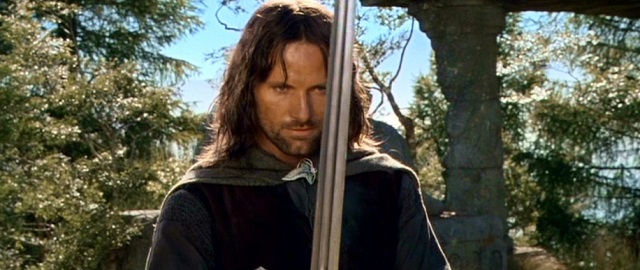
**This is a four-part series, unpacking the four different types of the masculine psyche, based on the work of Moore and Gillette. While this article uses the gender pronoun “man,” it is not exclusive to those who are male by birth, but those who identify with the masculine energy. Part I, here.
~
Every man has the potential to achieve mature masculinity.
There are four main archetypes of mature masculinity: the King, the Magician, the Warrior, and the Lover. As with all human behavior, there is also a shadow side to those aspects.
The Warrior is a vital and necessary masculine energy in every society. In its fullness, it is the force of action, protection, vitality, and forward movement. However, much of what we have seen in our world has been the shadow expression of the Warrior, and that has caused many to fear him.
The Warrior energy is one that is disciplined, in control, and is willing to not only face life’s challenges, but to move toward challenges. One can consider Aragorn from The Lord of the Rings—who, when facing what appears to be almost certain defeat, encourages the troops to ride out into the heart of the conflict. Fearless and brave, he moves toward the battle and is prepared to die if necessary.
The Warrior is a master of self-control and discipline. He is not led by his feelings; in fact, he is somewhat detached from his feelings. The Warrior is committed to a higher ideal—humanity, spirituality, democracy, integrity, and justice are just some of the causes the Warrior may embrace. He lives his life committed to that higher ideal, and because of this commitment, he won’t be led astray by trifling human concerns or petty behaviors.
The Warrior remains alert and is what we would call mindful. The Warrior knows his goals and knows what he needs to do to achieve them. The Warrior accurately assesses himself and knows his own strengths and weaknesses, as well as those of his opponents. The Warrior will not act hastily, but will wait for the right time to attack his opponents decisively and strategically.
The Warrior is not afraid to die, and he knows how short life really is. This awareness and lack of fear allows him to live fully, as he realizes that with days so short, there is no time to waste. The Warrior doesn’t hesitate; once he knows his course of action, he moves toward his end. He doesn’t overthink, over-analyze, or allow himself to doubt his course.
The Warrior takes responsibility for his actions, his life, and the outcomes of his decisions. The Warrior has self-control and discipline; he is willing to do whatever it takes to achieve his aim. He is the undrafted football player who never misses a practice and soon becomes a fan favorite.
However, the Warrior has a shadow side as well, which can show up in two different ways: the sadist and the masochist.
The sadist has a significant inability to relate well with others. He is like a drill sergeant in his home, his business, and leadership roles he may have. The sadist is so extremely detached from his ability to relate to others that he may become violent and cruel. This is the behavior that we have seen in our society that has caused many to fear the Warrior; it’s what leads men to commit acts of cruelty in wartime, such as rape and torture.
The sadist enjoys the violence and bloodshed, whether it is literal or metaphorical. You can see it in the fathers who scream at their sons from the sidelines to “rip his head off” during pee-wee football. It is present in the executives who relish in demoralizing employees. It is the husband who is cruel to his wife, children, and pets.
The sadist hates weakness in anyone and is driven to prove his superiority, which is rooted in a deep sense of worthlessness. The weak side of the sadist is the masochist hidden just under sadistic rage.
The masochist is the defeated and impotent part that is unsure of what he wants; he is a pushover and feels powerless. The masochist is unable to protect himself or others, and he is unable to go after what he wants. He will push himself beyond what he can handle and will pay for it, mentally and physically.
The masochist is the man who knows he deserves a raise, but can’t bring himself to talk to his boss about it. The masochist is the man who is pushed around by his wife and children until he explodes. He is unable to take the steps necessary to achieve his aims.
The Warrior—in his fullness—is vital, potent, energetic, decisive, courageous, persistent, and is loyal to a higher ideal that he is dedicated to achieving. Ideally, the Warrior will be balanced with other necessary aspects of the mature masculine psyche.
The Warrior does not engage in war or battle just for the sake of battle—but rather, he does so to create a new world, society, and better conditions for others. The warrior is committed to doing what is necessary to leave the world a better place.
~
Author: Lisa Vallejos
Image: movie still
Editor: Yoli Ramazzina


 Share on bsky
Share on bsky




Read 0 comments and reply